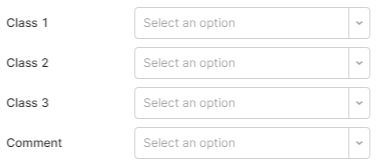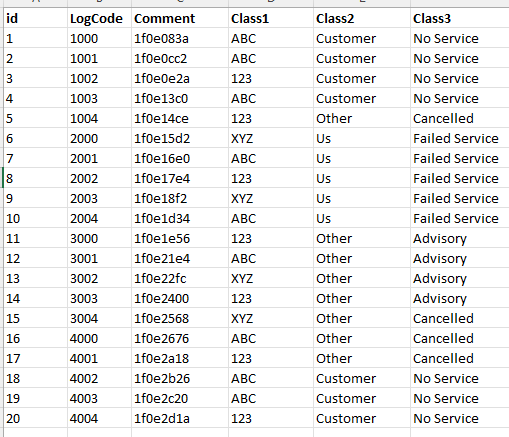I've created a working app used for logging issues in our company and emailing specific issues to clients. I am now working on version 2 of this app as the original has a lot (30 or so queries) that run both on load, on input change, in manual trigger and periodically. I want to build this version a lot more slimmed down.
I'm using the below select components to filter out "distinct" lists. The user works through a series of lists until they land on a "Comment" which gets sent to the customer & written to the database log.
I'm using queries like:
Import MS SQL database
select * from dbo.database
And from here onwards i'm using Query JSON with SQL
Select component 1 uses (Class1) the below:
select DISTINCT Class1 from {{formatDataAsArray(database.data)}}
Select component 2 (Class2) uses the below:
select DISTINCT Class1, Class2, from {{formatDataAsArray(database.data)}} where Class1 = {{select1.value}}
Select component 3 (Class3) uses the below:
select DISTINCT Class1, Class2, Class3 from {{formatDataAsArray(database.data)}} where Class1 = {{select1.value}} and Class2 = {{select2.value}}
Select component 4 (Comment)
select DISTINCT Class1, Class2, Class3, Comment from {{formatDataAsArray(database.data)}} where Class1 = {{select1.value}} and Class2 = {{select2.value}} and Class3 = {{select3.value}}
Final data that gets emailed to customer & written to the database log
select DISTINCT * from {{formatDataAsArray(database.data)}} where Class1 = {{select1.value}} and Class2 = {{select2.value}} and Class3 = {{select3.value}} and Comment = {{select4.value}}

The problem is that I am running a different query on each select component based on the previous select components value. My original app done server requests each time the query ran so this time around I've done a single server request and I'm querying that request with "JSON with SQL" to reduce the number of server requests but I've still ended up with a similar amount of queries and although it runs faster because the request is local it still doesn't solve my biggest gripe, being the volume of queries in the app. In this example forum post i'm using 6 queries to pull out a unique log entry from the database.
With that in mind and looking at the below screenshot of test data how would you build this type of app using the least amount of queries?
